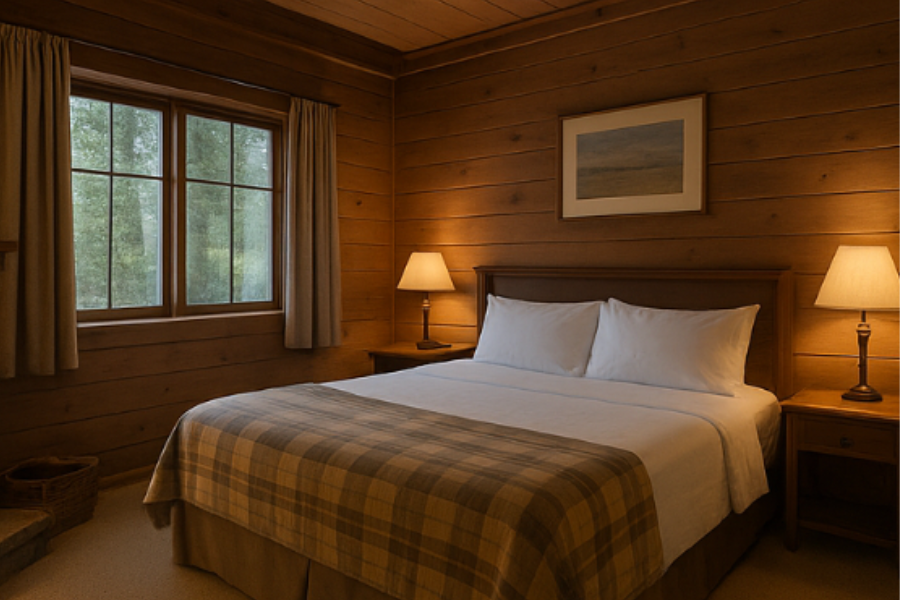Overview
According to the latest data from Japan’s Tourism Agency, the nationwide hotel occupancy rate in August 2025 was 65.9%.
By category, business hotels had the highest rate at 76.8%, followed by city hotels (75.4%), resort hotels (67.5%), ryokan (traditional inns, 45.8%), and guesthouses (38.8%) — showing that urban hotels tend to fill up fastest.
By prefecture, Osaka topped the list at 75.2%, boosted by the Osaka Expo.
Meanwhile, the number of foreign guest nights reached 13.98 million in July and 13.53 million in August, reflecting strong inbound demand.
In this article, we’ll explain how hotel availability changes depending on the type of accommodation and share practical tips to help you book smart and stress-free on your next trip to Japan.
Hotel Types and Best Booking Strategies
◯ Business Hotels
・Features:
Conveniently located near train stations, business hotels focus on function and attract both business travelers and tourists.
・Tips:
Weekends and event days fill up quickly, so book 3–6 weeks in advance when possible.
Even 2–3 days before your trip, you might still find availability if you stay flexible.
Try removing filters like bed type or ocean view to widen your search options — those rooms are usually pricier and sell out first.
・Recommended booking sites:
- Booking.com (large selection and many free-cancellation options)
- Rakuten Travel (English) (easy to compare station-area hotels across Japan)
- Agoda (strong for Asian destinations and last-minute discounts)
◯ City Hotels
・Features:
Chosen for their views, amenities, and brand quality, city hotels are stylish and often higher-priced.
・Tips:
During peak seasons such as cherry blossom, fall foliage, or long holidays, book 4–8 weeks ahead.
For regular seasons, 2–4 weeks is usually enough.
After comparing broadly, check the official website for member-only or long-stay discounts — sometimes you’ll find better deals under the same conditions.
・Recommended booking sites:
- Expedia (easy map filters and package discounts)
- Hotels.com (connected to Expedia, includes reward benefits)
- Ikkyu.com (English) (curated luxury hotels and ryokan)
◯ Resort Hotels
・Features:
Resort hotels are highly seasonal — peak seasons book out fast, while off-seasons tend to have more openings.
・Tips:
For summer holidays or New Year, aim to book 4–8 weeks in advance.
On off-season weekdays, 1–3 weeks ahead is usually fine.
Many travelers book based on weather forecasts, so right after a sunny forecast, you might catch a last-minute cancellation.
If possible, shift your stay to Sunday–Monday instead of Saturday–Sunday for better prices and availability.
・Recommended booking sites:
- Rakuten Travel (English) (great for regional resorts and hot spring towns)
- JAPANiCAN (JTB-affiliated site, great for ryokan and resort bookings)
- Expedia (easy to compare availability by location and weather)
◯ Ryokan (Traditional Japanese Inns)
・Features:
Ryokan have limited rooms and often fill up quickly on weekends or holidays, though weekday cancellations are common.
・Tips:
Plan 3–6 weeks ahead, and recheck for last-minute openings 2–3 days before your stay.
For special requests such as meal preferences, allergies, private baths, or arrival time, contact the ryokan directly via phone or their official website — it often leads to a better experience.
・Recommended booking sites:
- JAPANiCAN (detailed English descriptions of each ryokan)
- Ikkyu.com (English) (curated upscale ryokan, great for anniversaries)
- The Ryokan Collection (handpicked luxury ryokan)
◯ Guesthouses / Hostels
・Features:
Guesthouses and hostels focus on affordability, with rooms turning over quickly.
・Tips:
During events or weekends, book 1–2 weeks ahead; otherwise, you can often find rooms a few days before or even on the day.
Being flexible — for example, choosing mixed dorms instead of private rooms — makes it easier to find a bed.
Always check reviews carefully for cleanliness, quietness, and luggage storage options.
・Recommended booking sites:
- Hostelworld (best for dorm-style hostels)
- Booking.com (compare hostels and guesthouses easily)
- Agoda (often gets last-minute bed availability)
- Airbnb Japan (for private stays or entire homes; check house rules carefully)
Summary
For urban stays (business or city hotels), the rule is book early.
For non-urban stays (resorts, ryokan, or guesthouses), try adjusting your dates slightly and taking advantage of last-minute cancellations to find better deals.
In high-demand cities like Osaka or Tokyo, consider staying in nearby areas for easier bookings and more budget-friendly options.
